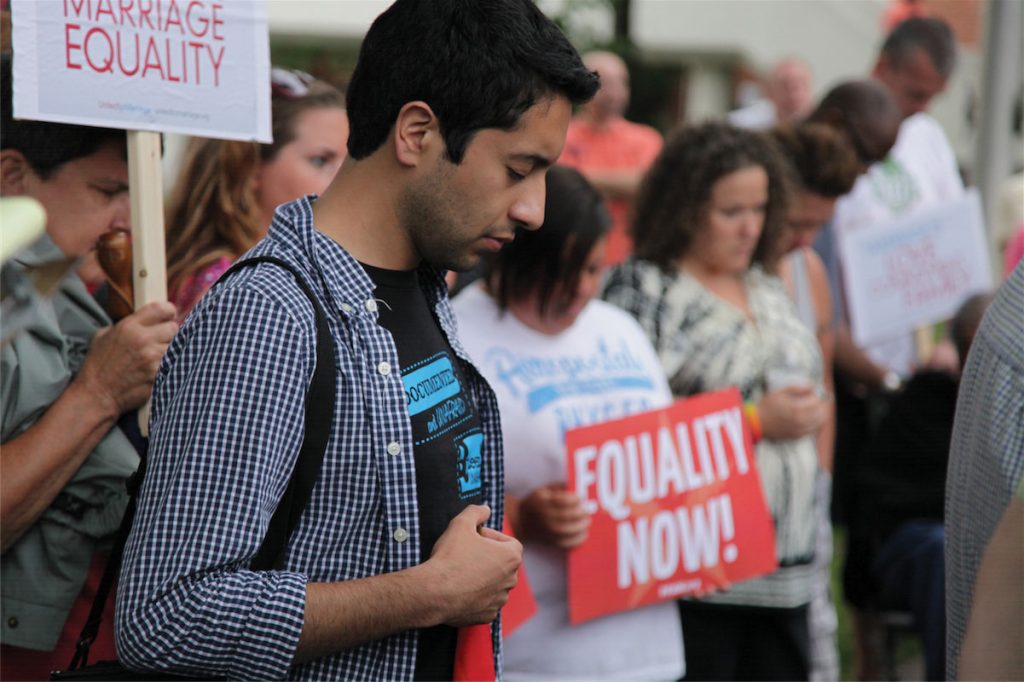FORBIDDEN: UNDOCUMENTED AND QUEER IN RURAL AMERICA
~ by joel martens ~
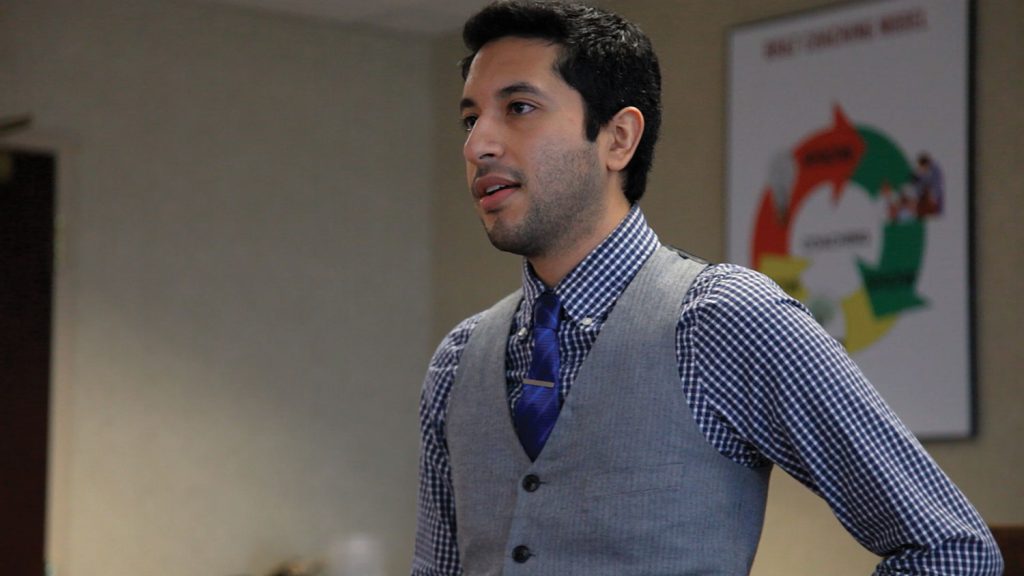
As members of the LGBTQ community, we have a deep understanding of what it is to struggle against being different and having to fight against that isolation and its oppressive nature. The process of personal and then social acceptance around those biologically born differences, help define the core of who we are as individuals and as a group.
For many, concealing that part of who we are was based on a sense of deep shame, placed on us that told us being “different” was an unnatural state of being. Most of us quickly understood too, that it was a secret we needed to keep hidden, stowed deep in the recesses of our lives. Indeed, for some, it still can be a matter of survival, literally.
The process of breaking those chains isn’t called “coming out” without reason. By stepping into the light and out of those shadows, we managed to redefined who we are in society, doing so by changing the narrative from the outside. Doggedly refusing to buy into the shame foisted upon us and the misdirected hostility from those who live in the fear of something they don’t understand.
Different = Bad
Different = Scapegoat
Different = Forbidden
Moises Serrano takes on that fight, as well as another one which divides us deeply in the film Forbidden: Undocumented and Queer in Rural America. It swims into the divisive debate of not only being queer and what growing up in a rural North Carolina was like, but doing so as one who is undocumented, as well. Born across the border, he was brought to the U.S. at eighteen months and has lived here ever since. This is the only home he has ever known and as he often says, “I fell in love with my country.”
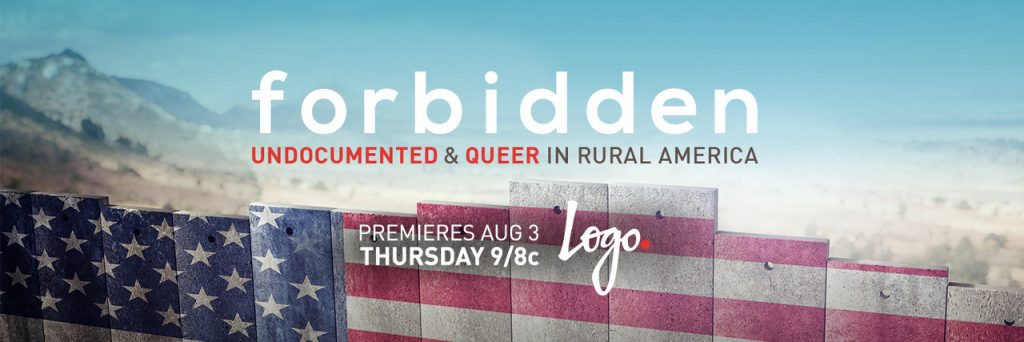
The poignent documentary featured on Logo, is especially relevent in light of the recent repeal of DACA [Deferred Action for Childhood Arrivals] by the Trump administration. The story follows Moises’ personal journey of self-acceptance as a gay man and as an undocumented immigrant. Coming out of the shadows not just in one world, but in two and why both pushed him towards activism as he fights for his version of the American dream.
No matter where you fall in the immigration debate, this is an important documentary that should be seen and celebrated. Serrano’s courage in sharing his story both as a gay man and as an undocumented American is powerful, piognent and puts a human face on his perspective. It’s powerful and I encourage you to seek it out and see it.
Here is our conversation:
You’ve managed to put a face on being gay and the issue of immigration and its challenges. We tend to see the world these days in terms of groups or ideologies and forget that these are real people, real human beings who struggle and not nameless faces. Was that your intention when you started out doing this?
Definitely. The goal of the immigration reform movement, specifically since the years I’ve been involved starting in 2010, is to bring the undocumented population out of the shadows, much like the LGBTQ population comes out of the closet. That’s where we sort of borrowed the framework. Having immigrants “come out,” personalizes the issue and individualizes it, making it real and very tangible for communities across the nation.
The process reminds me of the early days of the LGBT movement when Harvey Milk talked about the importance of coming out to your friends, family and coworkers. It put a face on the people who were LGBT and makes it more difficult to have hatred for an individual you know, rather than some nebulous, faceless group. . Was that the model you followed when you decided to take this fight on?
I saw that it was quite effective on a global scale and on the grassroots level. The idea of “How do we start a conversation?” There is no better tool to start a conversation around immigration than to have actual immigrants share their story. That’s what we focused on at the nonprofit that I cofounded and helped run for a few years [El Cambio]. Helping immigrants refine their stories and tell them, that’s the technical idea behind what we do. It’s the most effective tool we have to combat ignorance and the stereotypes that are so entrenched in society. To this day, I think it’s our most powerful weapon.
You’ve made a powerful documentary, it’s seminal in many ways because it really shows the human cost of branding a group of people as less worthy of help and at the very least, deserving of less compassion. It shows the emotional price in a decisive way, it many ways it was a painful process to watch at times.
Yes, and in many ways it’s still painful to this day. If anything, this is the moment, a pivitol moment where we have to make a decision, “Are we going to stand for our communities or are we going to remain silent.” The last seven years, I’ve chosen to be active and to speak up and I think now more than ever, I need to speak even louder. I am so grateful to Logo for giving me this incredible platform for a small, little documentary. I think again as you were saying, that these stories are critically needed at this point in time.
Was it a culmination of things, or was there a specific event that inspired you to become an activist?
It was a couple of different things. I was first introduced to the immigration reform movement in March of 2010 during the March for America. Hundreds of thousands of immigrants came to Washington D.C. to really ask for a pathway towards citizenship. That was my first taste of what being an activist was. I think it was my first taste of liberation, as well. I had always been undocumented and in the shadows. Now, I was part of the masses and I no longer felt alone, it was pretty heady stuff.
It’s so powerful when you gain the knowledge that you are not alone and not isolated. It has such an interesting and strong parallel with coming out and being gay.
Yes, it really does. I grew up queer and undocumented in rural America. I don’t think people actually understand how coming from rural landscapes and small towns are a universe away from urban areas, especially places like Los Angeles or New York, where I’m living now. For me, to be around hundreds of thousands of immigrants and potentially just as many who are undocumented, it was a very liberating moment.
It’s a layering of oppression and a layering of discrimination that I think as human beings we’re just not prepared for. I think fundamentally we all want to belong, whether it’s in our families, our communities or wherever, human beings are social animals. That is how we evolved and how we survived. Especially for me, to have such an alienating experience was difficult. I didn’t feel comfortable at home or telling my parents that I was queer, or being in high school because I was queer and I didn’t feel comfortable in high school telling my friends I was undocumented. I never felt like I completely belonged anywhere. It was an incredibly alienating experience that has taken me years to disentangle.
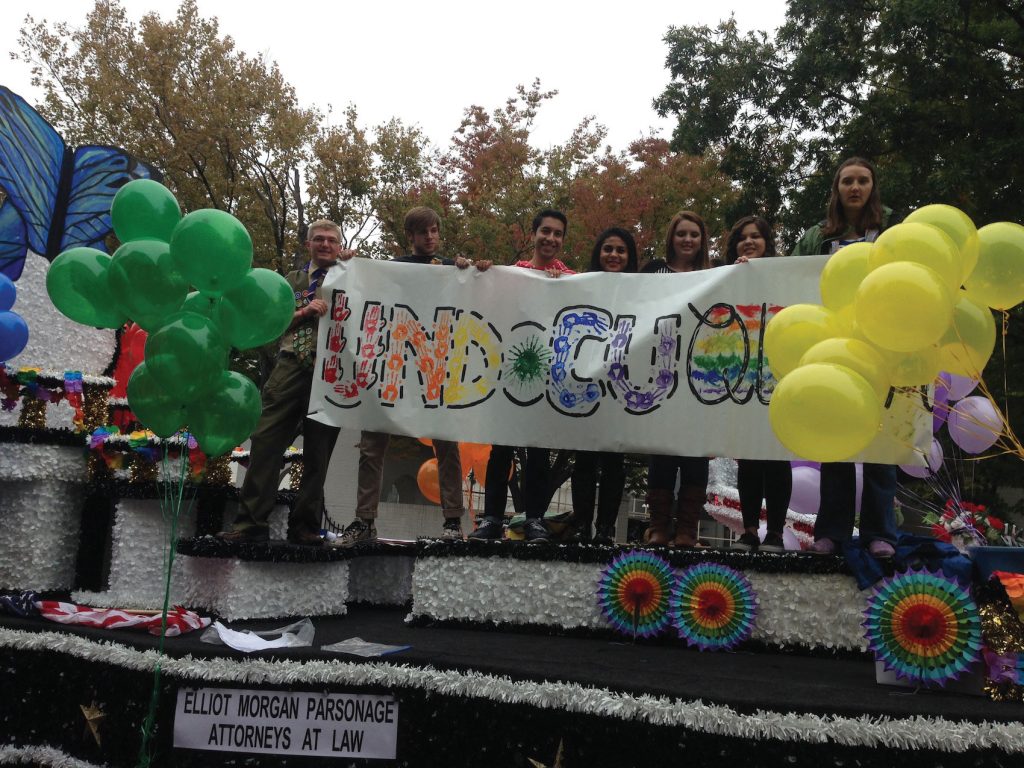
It’s something that I don’t think one ever completely gets away from, but it’s not a hopeless thing at all. There is power in it once you understand that and claim your story because it is part of what makes you uniquely who you are. It’s something that really comes across in the film, your struggle and yet your ability to turn that into action.
Thank you. For me specifically, I graduated from high school in 2007 and I was barred from going to college and again, living in the middle of nowhere, there were few resources. I was battling with depression and as I said before, it was a layering process. Having no support system and no access either to mental health resources as an undocumented immigrant added to it. I was working in a factory in 2010 from seven at night to seven in the morning and it was during that time where I hit my rock bottom. Every single day I had to go to a job where I faced homophobia and hostility from coworkers, who I knew were talking about me. My father had been laid off because of the recession and I knew I had to continue because I needed to support my family. I felt like I had to hide every part of my identity and that it was always under attack.
There was only one place for me to go from there and that was up. There was another experience I found working in that factory, it was the mothers and the women who worked there who told me their stories. All of them were undocumented and they would talk about how they would work 12 hours at the factory, then go to hotels right after their shifts at 7 a.m., just to make ends meet. That made me realize how privileged I actually was and it also made me realize how angry I was. These women shouldn’t have to kill themselves just to survive and that injustice really motivated me. It made me want to take action for my community.
Part of why this documentary is powerful is it reflects a lifetime of experiences both good and bad. That’s pretty rare, especially when it comes to someone LGBT and undocumented. When did you come up with the idea of creating it as a documentary?
I can’t take credit for the idea. This film is alive due to the amazing work that Tiffany Rhynard put into this project. I’m still amazed by her willingness to work for it and her commitment to this film, even during the times when I didn’t have the vision for it.
I had come out as queer and undocumented in 2010 and had built a reputation for speaking out. In 2012, I was doing a project in partnership with Wake Forest University, filming local narratives from immigrants and refugees and I was one of the narratives. On the day I did mine with Kathi Barnhill—who ended up being a coproducer and the cinematographer for Forbidden—her friend Tiffany Rhynard happened to be there visiting that day. As they started to interview me, Tiffany and I just sort of clicked.
She considers herself pretty liberal and defines herself as a “Woke white woman.” For her to realize how little she knew about the undocumented immigrant community, it really just floored her. She wasn’t prepared to think about the privilege of having citizenship. That’s how this project got started, based on those truths.
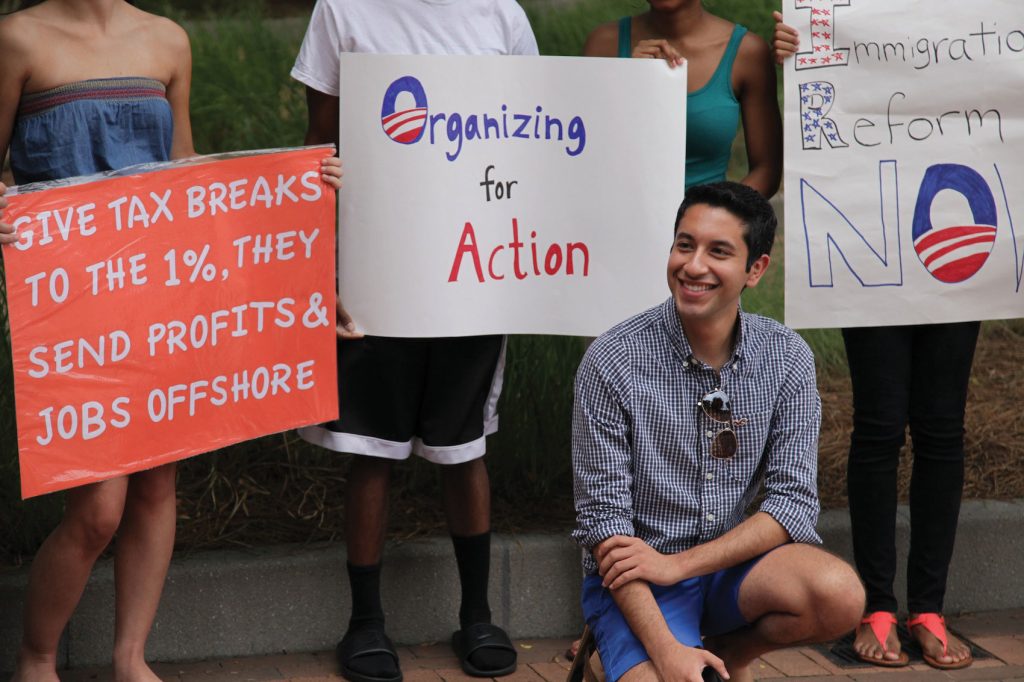
What was the process of filming like? Documenting your life so continuously is very intimate and in many ways invasive.
The process was maybe a little easier because of my relationship with the director. I trusted Tiffany, I still do and she really put me at ease. She made me feel that this story wasn’t going to be distorted in any way and that she wanted it to be as straightforward as possible. I think it’s exactly what we see in Forbidden. That goes the same for my family, too. My parents didn’t know what I was doing and she managed to gain their trust, as well.
You started this in 2012, finished the project in 2014, then premiered in 2016. We have a new administration since then. How has that altered your perspective on things since you premiered the film?
I think the instability this administration has brought, is terrifying. Before with the Obama administration, we at least knew where we stood. His administration implemented deferred action for childhood arrivals and decided to continue this program. Right now, whether the Trump administration will continue or end this program, that uncertainty is pretty terrifying. Though the comparison has to be made that both administrations are similar in many ways. Obama does have the distinction of deporting the most undocumented immigrants from this country and that’s a fact we just can’t ignore.
It’s an interesting conversation to have overall, especially in Southern California. It’s pretty volatile because people on both sides are so passionate about their perspective. My point for doing this story is to bring light to what the real human costs are and put a face on those who are being hurt.
I think that as undocumented immigrants, we had never really had the ability to shape, create and mold our own narrative. To a certain extent, the conservative voices around immigration have shaped our narrative for us. That’s my goal, we don’t need people to speak for us, even those who are our allies, even those who shaping and molding our stories are on the more liberal side of the debate. We have to be leery of that because when we push for the exceptionalism of undocumented immigrants, we often end up criminalizing a whole cross section of our community. For example, I know personally of friends and community members who had do drop out of high school to support their families, because their parents were deported. The challenge is, if you drop out of high school, you can’t apply for deferred action.
There is a lot of misinformation out there and it’s really easy to be convinced that the people who are brown or different phenotypes, that they are the ones who are responsible for creating the problems we have as a society. I think the thing that is really curious for me, is that it wasn’t immigrants who caused the recession, it was men in suits inside banks and on Wall Street, which always makes me wonder, where the anger is for that?

We could have a very long, indepth conversation about that. It’s always been so heartbreaking to me that we hold accountable those who have the least amount of power and the least ability to have their voices heard.
Exactly and I think that we need to recognize that this is fundamentally a class war. It’s about people who structurally and economically have no power. My parents were farmworkers, they did the jobs that no one else wanted to begin with and because the conditions are so harsh it was difficult. If we allowed farmworkers to unionize and paid them a living wage, it would benefit everyone in the end. But we don’t do these things.
I’m interested to know how the response has been to the film and its messages.
The response to Forbidden has always amazed me. We’ve had several standing ovations and it always completely floors me. The most common response and feedback that we get is, “I just didn’t know.” And I think that is what the goal of this documentary is for me, to be educational. I feel it’s very good at building a narrative around what my character is and who I am. It also presents the legal challenges and obstacles, we have Amber Murray, who is an exceptional immigration attorney talking about how hard it is and the realities of the immigration issue. Educating America is the goal of this documentary. I would dare to say that we’ve been pretty successful so far and I’m proud of that.
Is there anything that completely surprised you so far since the film came out?
To this day, I’m not able to believe that we’ve touched so many lives with the film. I’ve been working very hard on this for a long time and it’s hard not to become cynical about this movement and not to become hardened by what you see. It’s exhausting at times. Sometimes I’ve had these incredible and amazing responses and those really feed me and keep me motivated to keep on fighting. Having people reach out to me and tell me how important the film has been to them is something that I still have a hard time believing.
I have been very touched by this film… And educated by it. You managed to make it very personal and easy to connect with it on an emotional level.
Something that I really want to recognize on this film are the women who were behind it and behind me personally. Tiffany Rynard, Kathy Barnhill and Heather Matthews have done an amazing job and put all of their work into this documentary for free. Also, my mother and sisters. I took a class called standing on my sisters shoulders and it really hit that point home for me. The only reason I am where I am, is that there were women in my life that made sacrifices for me. I really want to recognize their labors.
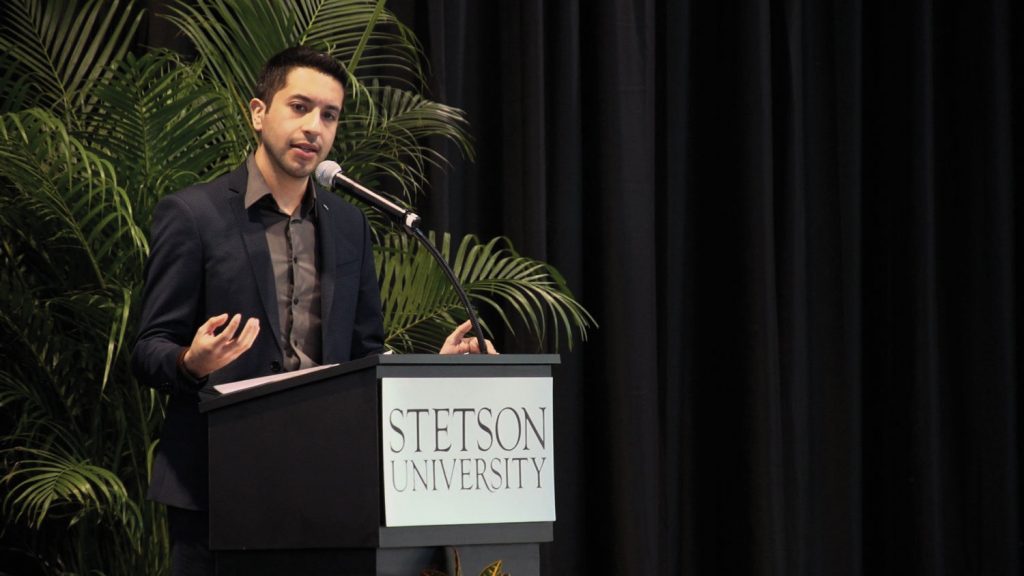
Anything specific that you’d like to include that we haven’t covered?
I think I’d like to remind Americans that our immigration laws have been used by those in power to exclude those who don’t. In many ways since the founding of this nation, there has been exclusion of a group or minority who is deemed unworthy. Again, undocumented immigrants are just a new story in that cycle of discrimination. Our very first immigration law was put forth to exclude the Chinese, then subsequently the Japanese. We excluded all Asians until 1965, that’s pretty incredible.
I think we need to wake up, do our homework and realize that immigration laws have never been inclusive, they have been exclusieve. The immigration system isn’t broken, it is working the way it was set up. We need to fundamentally change the way it works.
Forbidden: Undocumented And Queer In Rural American premiered in August on Logo Documentary Films. They will continue to air the TV version of Forbidden throughout the next nine months. For more scheduling information and to view a trailer, go to logotv.com/shows/logo-documentary-films.
